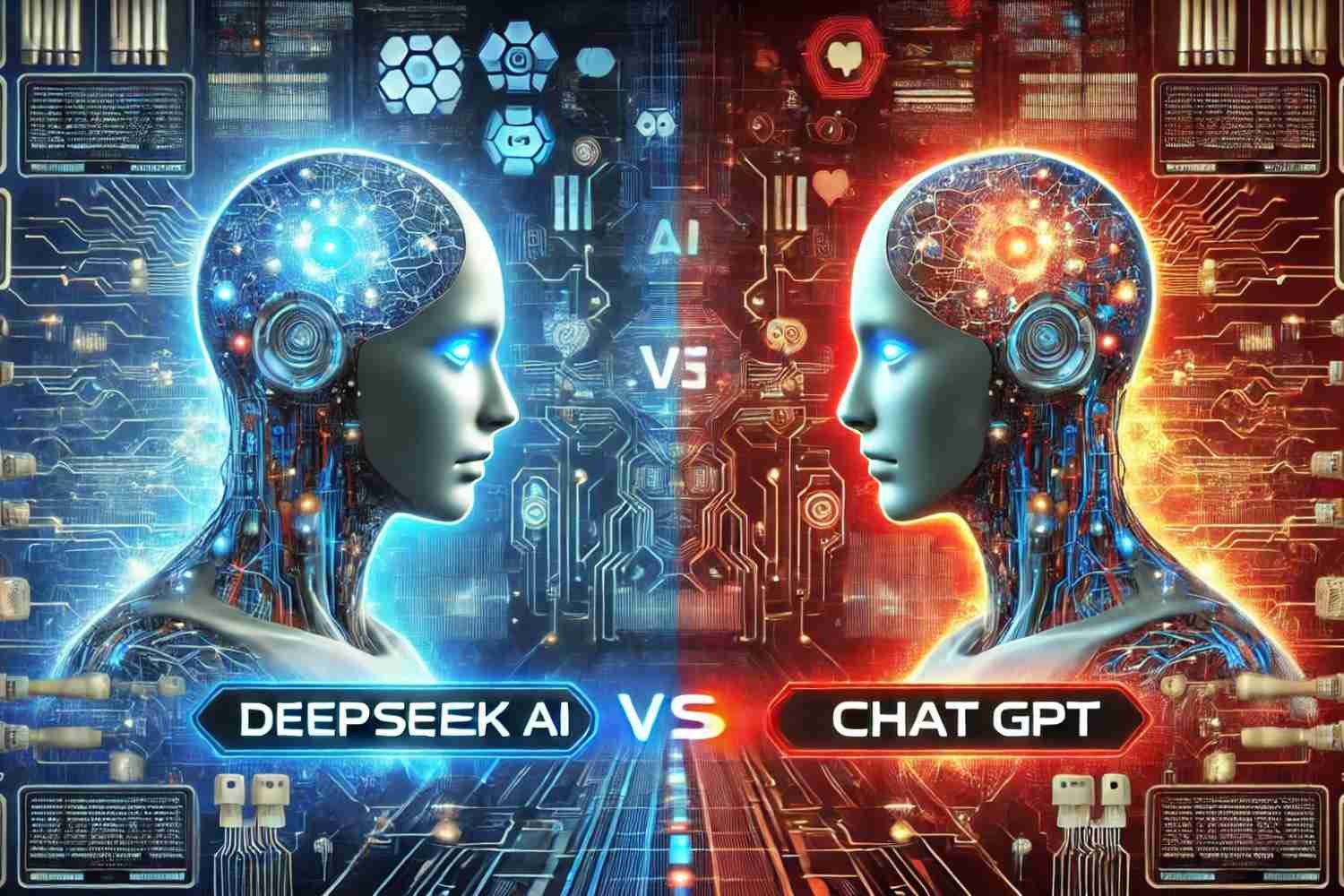DeepSeek AI vs. ChatGPT
Science & Technology SciencePosted by NewAdmin on 2025-02-06 08:50:54 |
Share: Facebook | Twitter | Whatsapp | Linkedin Visits: 28

The ongoing AI competition between OpenAI's ChatGPT and DeepSeek AI has intensified, with OpenAI alleging that DeepSeek has "inappropriately" copied its technology. DeepSeek, a China-based AI company, has emerged as a major competitor in the generative AI space, offering large language models (LLMs) that rival ChatGPT in performance. OpenAI's concerns stem from claims that DeepSeek’s model architecture, training data, and responses closely mimic ChatGPT's outputs, raising questions about intellectual property, data usage, and fair competition in AI development.
DeepSeek AI, reportedly trained using a mix of public internet data and proprietary datasets, markets itself as a highly efficient AI model with improved accuracy and lower energy consumption. OpenAI, however, contends that DeepSeek's approach may have involved unauthorized replication of ChatGPT's model design, an issue reminiscent of past legal battles in the AI industry. This conflict highlights the broader challenge of balancing open-source AI research with protecting proprietary advancements. As AI models become more powerful, determining what constitutes ethical AI development versus potential infringement remains a contentious topic.
The controversy comes amid a rapidly evolving AI landscape where companies like OpenAI, Google DeepMind, and Anthropic are pushing the boundaries of generative AI. Additionally, concerns about AI bias, misinformation, and regulatory oversight add further complexity to the debate. If OpenAI pursues legal action, it could set a precedent for future AI intellectual property disputes, shaping how AI models are trained and deployed worldwide. Meanwhile, DeepSeek AI continues to refine its technology, emphasizing innovation and competition as key drivers in the AI arms race.
The allegations against DeepSeek AI raise concerns about AI model training, data sourcing, and replication of proprietary technologies. If OpenAI decides to take legal action, it could set a precedent for AI intellectual property rights, influencing how AI models are trained and what data they can use. This could lead to stricter policies on AI transparency and the sharing of model architectures, affecting the development pace of future AI systems.
Furthermore, AI research may become more closed-source if companies fear their innovations being copied. While open-source AI fosters innovation, legal disputes like this may encourage firms to protect their models and data more aggressively, slowing down collaborative progress in the field.
Search
Categories
Recent News
- Gates vs. Epstein: The Battle of Billionaires Amid Scandalous Allegations
- Telugu Star Fights AI Pornography: A Battle for Privacy and Dignity
- Elderly Woman's Expensive Pigeon Feeding Habit
- Reviving a Democratic Tradition: India's Election Chiefs Convene
- Medical Student's Tragic Death Shocks Nellore College
- Tamil Nadu's Welfare Drive: Empowering Citizens, One Camp at a Time
- Telangana's T-Safe App: Revolutionizing Women's Safety
- Cyberabad's War on Drugs and Crime
Popular News
- Navigating IPO Market Dynamics Amid Volatility and Regulatory Changes
- Massive Worldwide Microsoft Outage Disrupts Multiple Sectors
- Panjapur Bus Stand to Reshape TNSTC Routes
- తెలుగుదేశం పార్టీ - పేదరికాన్ని నిర్మూలించడంలో వాగ్దానం
- Universities Embrace Remote Learning Technologies Amidst Ongoing Pandemic